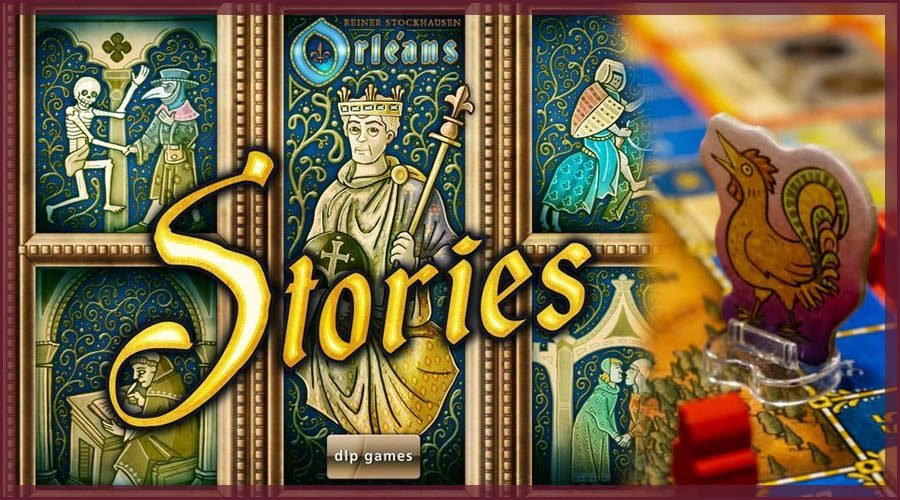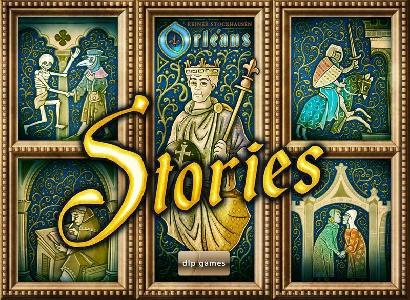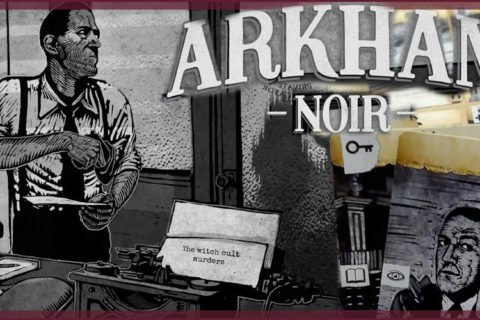Orleans Stories – Stories from France
 Cheese and wine are back on the table. I have nothing against the taste, but even a fresh bread or even a trout would not hurt. But our Baron believes that his people can only survive the approaching winter with cheese and wine. Even the market in nearby Orleans offers nothing else. So it will again be a long and deprived winter. At least we have enough wood to heat and keep our little huts warm. Last year it didn’t look very good here, many people had to endure the winter freezing. But enough time owed to the winter, now it’s all about the here and now and that means cheese and wine to eat.
Cheese and wine are back on the table. I have nothing against the taste, but even a fresh bread or even a trout would not hurt. But our Baron believes that his people can only survive the approaching winter with cheese and wine. Even the market in nearby Orleans offers nothing else. So it will again be a long and deprived winter. At least we have enough wood to heat and keep our little huts warm. Last year it didn’t look very good here, many people had to endure the winter freezing. But enough time owed to the winter, now it’s all about the here and now and that means cheese and wine to eat.
A new trip to Orléans is on the agenda. The publisher dlp Games published its latest Orleans sprout – Orléans Stories for Spiel 19. A board game that is very much similar to its big brother, but still works independently. What makes the board game with the name around the French city of Orléans different in its latest version, we want to explain to you in our review.
Have fun reading it!
Orléans Stories – A new beginning
First of all, I must confess I’m not much of an Orléans player. I’ve played the basic game a few times, but I only know the various expansions from hearsay. So we were told that the expansion where you play cooperatively is the best expansion. So now with Orléans Stories comes my first big intense experience with this classic board game.
But first of all, there are a few important things that need to be clarified in advance! With almost everyone I’ve talked to about Orléans Stories lately, I had to clear up some misunderstandings in advance. The board game has no legacy mechanism. I can play it as often as I want, nothing is destroyed or changed in any way. And secondly, Orléans Stories is a game in its own and doesn’t need any of the products already released.

At first glance, many things seem the same. I again pull my various workers out of a bag, which I then distribute on my tableau to be able to perform the corresponding actions. These actions give me raw materials, buildings or new workers, which I can fish out of my bag again in later rounds.
The difference to the original is rather to be found in the details. The fixed game plan has given way. It has been replaced by a game plan, whose structure changes from game to game. Goods that I consume are out of the game, this also applies to goods that I sell on the marketplace. True to the motto: Out of sight, out of mind.
Another new element are the blessed works. These community works, e.g. feeding the poor, three-field economy or alchemy, can be used by all players and give the player a unique bonus. I can participate in the three-field economy by giving away a grain and receive 3 victory points in return.
But the biggest difference is clearly in the stories. And here the board game comes with two different scenarios or stories that use the game materials and the game mechanics in different ways.

The First Kingdom – On your marks ready to go
In the first story, The First Kingdom, everything revolves around the construction of our little empire. In the beginning we don’t have much. A village and a few settlers are all we have. So with this we shall build our great empire. So I slowly start to enlarge my land, because more land means more resources when I harvest them. With the more resources I enlarge my land again etc. etc.
However, I am not the only player at the table pursuing this plan. Sure, there’s always a little bit of competition, but The First Kingdom is different because it’s a race. Not the victory points decide in this story who the winner is, but the extra task block to cross off in Roll&Write style. Because as everyone knows, a kingdom needs a certain infrastructure to be considered a kingdom.
I need a well in my kingdom as I need at least 20 citizens, a harbour and some other nice things. The first one to complete the total of six tasks first and still have a fortune of at least 30 money at their disposal is the winner. Each order needs certain workers or goods to be completed.
How you complete the tasks is up to you. It is up to you whether you put your energy into building the harbour first, or whether you first take possession of enough land to consolidate your power and collect goods.
However, there is a small hurdle to overcome. I’ve already written that you’ll start small at the beginning and that’s reflected in the possibilities.

Epoch by epoch
In the beginning, all players start in epoch one and you don’t have the opportunity to train priests yet. But you need this to be able to build the required church. And only in epoch seven you can build it at all. Through the tasks Orléans Stories gives me the direction to go. I have to complete epoch by epoch in order to get more and more progressive actions, so that I can fulfil my tasks with them.
Each epoch has its own historical background and also different conditions of ascent. In epoch one, there are three areas that I control and I need to be able to feed my people without any problems. In other epochs it is easier to ascend. Here it is often enough just to participate in the blessed work.
How long I stay in an epoch is up to me. In some epochs I use longer in order to gain enough glory first. In other epochs I am as short as possible. During the plague or famine there are no bonuses for me. Worse, I even have to pay extra to protect my population. I’d rather take points of glory.
Although these glory points are not relevant for my position at the end of the game, they are still very important. When I move forward on the glory (victory point) track, I cross bonus fields. Besides goods and money, I also get the opportunity to cross off goods and workers on my task block. This again saves resources and actions.

The favour of the king – collecting fame for the king
The second story, The King’s Favor, is completely different. The basic mechanisms are of course the same. I also pull workers out of the bag, collect goods and the story also comes along with epochs. It’s the game mechanics that changes fundamentally. Now it’s no longer about being the fastest. Now we have to show the king if we are worthy to be his successor.
We have five epochs to do this. Each epoch consists of four seasons. At the end of the epoch I must have fulfilled the king’s condition or I am out of the race for the throne. As if this wasn’t hard enough, I must also have gained 75 glory points by the end of the fifth epoch. Again, if you don’t manage that, you have lost your claim to the throne. But that’s still not the end of the game, because after epoch five there is a one final scoring. Whoever can collect the most glory points here will become the new king.
The second story is about hardcore optimization. How do I deploy my workers and goods as efficiently as possible to meet the king’s requirements. And I have to watch out like hell not to be completely out of the game. Because one thing I have to be clear about in The King’s Favor: There is the element of player elimination that hovers over you like the Sword of Damocles. If I make a mistake or draw badly, I’m out of the game and I can only watch my opponents compete for the king’s favour.
In principle, I can play as I like. However, the second story is tighter in its guidelines than the first one, because the epochs and seasons are continuously progressing. I can’t decide to simply play an epoch again.

Same game components other game
Only through story two does the potential of Orléans Stories as a whole become apparent. A small booklet with slight rule modifications and a few cards are enough to give me a different feel for the same material. Here I can see where the journey should lead. Expansions to Orlèans Stories could be published faster, if I understand the board game as an open system. Of course, the player community can also play an active role in this.
Whether it comes so far, however, the future will show. In any case, new stories are already announced by the publisher.

Orléans Stories has yet to prove itself
No question, the latest board game from the Orléans universe has it tough. I really like the innovative approach with the stories. I have one game and have several different game interpretations with the same basic mechanism. But two stories are just not enough for a basic box from my point of view.
Even the name giving stories don’t have a real playful depth. The lyrics are nicely written and also the thematic embedding is quite good, but only when playing for the first time. So I read the whole text in the first game of each story. Of course with a lot of atmosphere in the voice, so that it fits. But already from the second game on I concentrated only on the game mechanics. The stories were passé. In my opinion this is also due to the fact that the stories have no playful influence. No matter how we decide during the stories, the sequence of events is always the same. No matter what decision I make, the path is fixed.
In addition, there was the effect that many players were not interested in exactly that. The suggestion that they should first read the story in the booklet that comes with each story was not really used. Because the stories are just a lot of flavortext. Modern board games set completely different standards when it comes to something like storytelling. So it should be possible to take different paths within a story.

The fundamental game
So if the written stories don’t offer any real added value, there’s still the game and there it’s just an Orléans with two expansions. Unfortunately, I don’t have the expertise to judge whether this is also an added value for the people who already own an Orléans. So here I can only rely on the statements of my fellow players and their statements all go in one direction: “It’s fun to play Orléans Stories. However, it doesn’t give me any added value to buy one because I already own an Orléans.”
But for me as a non-Orléans owner things are different here. I had always wanted to buy one, but somehow couldn’t bring myself to do so. Now I don’t have to make that decision anymore. And since it’s basically an Orléans, it’s no problem to play it with long-established players. The small changes are now quickly explained and so even new Stories players will quickly find their way into the game.
Unfortunately, these small changes have not been clearly highlighted in the rules booklet. Only by talking to veteran Orléans players could I figure them out. And unfortunately the rules are quite difficult to learn and so it took a few games until I was really sure about the rules. One reason for this was the design of the rules booklet, because first the general rules are explained and then in another part the special rules for each story. But what really weighs heavy for me is the fact that basic elements are hard to find or simply not explained at all.
For example, it isn’t even explained which goods are considered food, although during the different epochs it is often enough referred to that I should give food to feed my people. Or the fact that goods are consumed and returned to the game box, even if they have been traded on the market, is only briefly explained in one passage without being emphasized. We did this wrong in the first game, because the passage was quickly overlooked.
And so the first games were already frustrating when I first leafed through the rule book because I wanted to answer the questions of my fellow players, but I didn’t come to a satisfying answer or I had felt an eternity searching in the rule book for the passage that I know exists.

A long game of Orléans Stories
Now that I know the rules and can quickly teach them to new players, the experience is different. It’s fun for me to pull the individual tiles out of the bag and be surprised each time whether exactly the ones I need for my turn are drawn. Of course this situation doesn’t happen that often and so I have to see what I do with my people.
In addition to that, the constantly changing epoch goals and also small changes in the game mechanics, to which I have to adjust myself. Whereby I must say that I clearly like The First Kingdom better.
…and you’re out.
The King’s favor has a big problem for me and that is player elimination. Although I can screw up an epoch goal once and have a joker for it, it is worth 10 points alone and is only valid once. If I am unlucky in the draw, I am out early and can watch the others play. Although this problem only occurs with 3 players or more, but it does occur and since a game quickly cracks the three hours playing time, it can be frustrating.
It also frustrates when I have played for three and a half hours and then fail because there is no more wood on the market. That’s why I can’t reach one of my goals anymore and so I’m out of the race in the last few meters and can’t participate in the final classification. That can spoil the evening of the games a bit.
But even the first story is not free of a player elimination. Here, players are not directly excluded by the mechanics or the targets, but due to missing goods or even the resentment of the other players, a player can be blocked so strongly that he has no chance to win. If, for example, there is no more wood for the church building, I cannot fulfill my task and will never be able to win.

A little playing king always works
What surprised me a lot was the gameplay. Because even though Orléans Stories can be quite long, it still doesn’t feel long. The perceived downtime is quite small, since the brooding part, the planning of the actions, takes place for everyone at the same time and the actual handling of the actions takes place quite fast.
Also the player interaction does not come too briefly. Due to the fact that space and resources on the game board are limited, sooner or later confrontation will occur. However, this confrontation is solved in a clean and orderly manner and does not require a lot of dice or downtime. Of course I can also decide to follow a more cooperative approach, where I simply let the conquest of foreign territories be easy. Whether this will help me to win or not, remains to be seen.
Unfortunately, the great enthusiasm did not come over me. Orléans Stories is a good game, but not an outstanding one. I would also play in a game again any time. And whether the missing enthusiasm was due to the Stories game principle or it’s the basic Orléans game mechanics, I can’t say due to the lack of comparison possibilities.
Unfortunately, even after some games the air is simply out for me. The individual rounds are too similar and the game is developing more and more into a normal optimizer game, where the first moves are relatively predictable and offer hardly any possibilities to play for victory with a different strategy.
Even the potential player elimination does not necessarily lift the mood. I don’t really feel like being out of the race early because of a missing wood, not with such a long playing time.
Maybe this will change with other stories, but that’s more a hope than a fact.



Leave a Reply